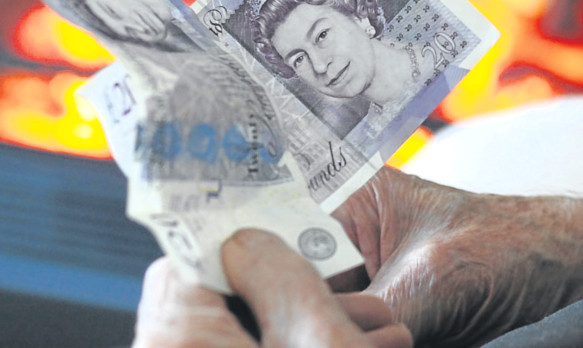
The Government is expected to announce an inquiry into rip-off surcharges on energy bills this week.
Customers can be charged up to nearly £400 a year extra if they don’t pay their bill by direct debit. Campaigners want that figure to be capped or abolished altogether.
Nearly half of all households don’t pay by direct debit, making the surcharges an effective money-spinner for energy companies already raking in billions in profit.
The Department for Energy and Climate Change (DECC) is expected to act after scores of MPs signed up to speak out against the practice in a debate this week.
Campaigning Conservative backbencher Robert Halfon will lead the debate on Tuesday. He said: “It outrages me that this is going on. It hits the poorest hardest and penalises the people who can least afford it.”
More than 170 MPs from all parties backed Halfon’s call for a debate, making it the most popular pitch to the Backbench Business Committee that doles out Commons time since it was set up.
Halfon, dubbed the “cost of living Conservative” for his successful campaigns on cutting petrol duty and expanding free school meals, explained what prompted his interest.
He said: “A constituent wrote to me saying Co-op Energy were going to charge her £63 extra per year if she didn’t pay by direct debit. She’s always paid bills at the post office and didn’t want to change that.
“I couldn’t believe it £63 seems a lot of money for a pensioner so I contacted Co-op Energy who explained they are one of the cheapest.
“On average customers are being charged £114 every year if they don’t pay by direct debit. One firm charges £390.
“It’s unbelievable. The energy companies dress it up as a discount for paying by direct debit but actually it’s a premium being levied on the 45% of consumers who don’t pay by direct debit.”
Halfon has raised the issue at Prime Minister’s Questions and privately with David Cameron.
He added: “I’ve had a chat with the PM and he genuinely recognises it’s an issue.”
However, it’s taken Halfon’s efforts to get it on the Government agenda despite the Coalition looking for energy policies to blunt Labour’s announcement of a fuel price freeze should they win the 2015 election.
Halfon will meet energy minister Greg Barker on Monday. The DECC is expected to make an announcement before the debate.
Ofgem are likely to be directed to look into the issue with a view to introducing a cap on charges.
Halfon added: “If I was in charge of an energy company I’d look at the cost of this and either be first to announce a cap at around £25 per year or just stop it.”
Last week SSE became the most recent of the Big Six energy companies to post financial figures revealing that it’s on target to make profits of £1.5 billion this year a rise of 8.8% following an 8.2% hike in prices last year.
Halfon is determined to see the issue through to the end.
Next week he’ll introduce a backbench Bill that would force companies to explain how they calculate the surcharges and work towards a cap.
A limit on charges for those who pay their bills at the post office or by mailing a cheque is not enough for campaigners, who also want to see prices cut for customers who use prepay meters.
Claire Welton, of the Fuel Poverty Action group, said: “When the Government’s own research shows that those on prepayment meters are most likely to be in fuel poverty it is perverse that these are also the people who end up paying most for their fuel bills.
“By offering a ‘discount’ to those on direct debit, the energy companies are punishing those who do not have a regular income or are unable to set up a direct debit.
“While we welcome discussion and would welcome an inquiry from the Government on this issue, we do not think this goes far enough.
“The punishment of the seven million prepayment meter users as well as ‘pay as you go’ users must end these users should not pay any more than those with direct debits.
“Paying over £100 more per year could be the difference between a household having to sit in the cold instead of feeling able to turn the heating on.”
A spokesman for the DECC said: “We are looking into this and making sure charges are fair. It’s ongoing work and we don’t want to pre-empt the outcome of the debate.”

Enjoy the convenience of having The Sunday Post delivered as a digital ePaper straight to your smartphone, tablet or computer.
Subscribe for only £5.49 a month and enjoy all the benefits of the printed paper as a digital replica.
Subscribe